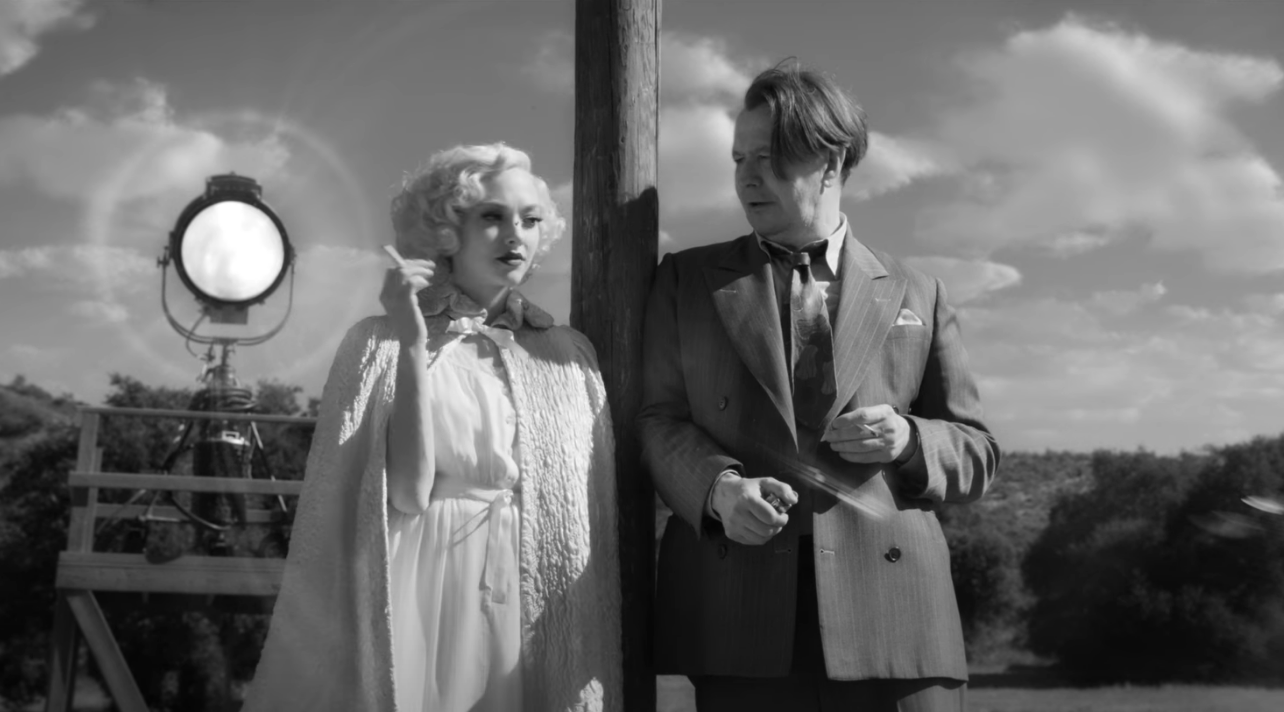David Fincher’s latest film falls flat in revealing Herman J. Mankiewicz’s inner life
Mank was hard to sit through. This is both surprising and disappointing to me, as an avid fan of director David Fincher’s work. But when it comes down to it, Mank simply doesn’t pack the punch it needed to keep me engaged.
The film follows Hollywood screenwriter Herman J. Mankiewicz as he heals his broken leg in a far-away lodge, writing what would become Citizen Kane. Meanwhile, we jump sporadically into various moments of his past, exploring the people who’ve inspired the script and significant events that affected the writer. These flashbacks, which make up most of the film, attempt to reveal Mankiewicz’s inner life.
The problem is that the flashbacks are confusing and feel disconnected from each other. More generally, Mank has a big editing and writing problem — the entire structure is off. The introduction of flashbacks and the end of “present-day” scenes lack motivation; nothing in a previous scene clearly triggers the succeeding flashback. At points, it almost feels random.
And while you’re trying to figure out the connections between scenes, the excruciatingly long dialogue sequences only add insult to injury. Everything seems so convoluted as characters talk a whole lot about nothing, only making me wonder “Why is this here, and what am I supposed to be learning?” It seemed as though the real story of the film was hidden somewhere in these flashbacks, but the confusing back and forths only make it difficult to know what exactly that is.
I believe that Mank’s structure fails itself because it tried too hard to pay homage to Citizen Kane. The black and white cinematography and 1940s sound is done well and works as intended, but it should have been kept at that.
The reason Citizen Kane’s heavy use of flashbacks works is because the story supports that structure. It’s about a journalist interviewing people who knew the titular character after he died. Its structure is what helps make the story so dynamic. The film also makes explicitly clear the connection between the present scene and the flashback. Mank falls flat relying heavily on flashbacks because its story just doesn’t support it, or at least it didn’t need it. There is no doubt that Fincher can direct complex films, he’s made an admirable career out of it. He just lost something with Mank.
Fincher has had an ability to adapt real stories and novels and transform them into thematically rich pieces; The Social Network is about the development of Facebook on the surface, but really, it’s about friendship, loyalty, betrayal, and the fine line between ambition and greed. Zodiac follows journalists’ and detectives’ search for the Zodiac Killer, but it’s really about the consequences of obsession.
Mank just doesn’t have the same spark. Obviously, it would be ridiculous to assume that every film needs to be deeply philosophical, political, or personal, but Mank seemed like it was setting up something more. When I compare Mank to Fincher’s previous work, I don’t see the same strength in his themes.
Ultimately, Mank is confusing and long, which makes it hard to care about. There is no attempt to connect to its characters, to make them likeable, or to make themes and plot clear. It’s harsh to say this, especially as a fan of David Fincher, but at the end of the day the descriptors “confusing” and “boring” are accurate, and that is just a bad combination to have.




